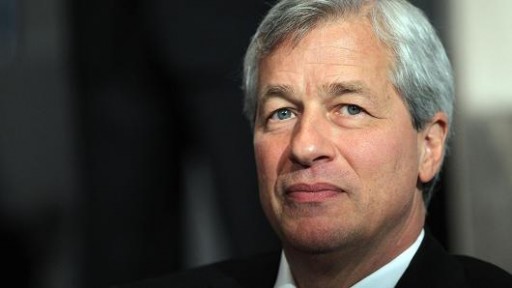- Home
- >
- Market Rumours
- >
- JAMIE DIMON: ‘There will be another crisis’

JAMIE DIMON: 'There will be another crisis'

JAMIE DIMON: 'There will be another crisis'
In his annual letter to JPMorgan Chase shareholders, CEO Jamie Dimon has a clear warning:
Some things never change — there will be another crisis, and its impact will be felt by the financial markets.
Dimon adds that the trigger of the next financial crisis will not be the same as the most recent one, but no matter — another crisis will come.
And how it unravels will not be as unfamiliar as we might expect.
"While crises look different, the anatomy of how they play out does have common threads," Dimon writes.
Here are the core behaviors investors exhibit when these crises break out, according to Dimon.
First, they sell the assets they believe are at the root of the problem.
Second, they generally look to put more of their money in havens, commonly selling riskier assets like credit and equities and buying safer assets by putting deposits in strong banks, buying Treasuries, or purchasing very safe money market funds.
Often at one point in a crisis, investors can sell only less risky assets if they need to raise cash because, virtually, there may be no market for the riskier ones.
And what's more, no investor is truly safe in a crisis. Here's Dimon:
These investors include individuals, corporations, mutual funds, pension plans, hedge funds — pretty much everyone — each individually doing the right thing for themselves but, collectively, creating the market disruption that we've witnessed before. This is the "run-on-the-market" phenomenon that you saw in the last crisis.
Dimon continues his discussion of what the next crisis could look like by breaking down how banks' balance sheets had changed since the financial crisis.
Banks now hold 100% of liquid assets against potential cash outflows, and Dimon says no bank will want to be the first to admit that its liquidity coverage ratio has declined for fear of looking weak.
Dimon also says that investors will want to buy Treasuries because they are considered safe, but with Treasury supply declining, investors will have to find other places to put their capital.
 Varchev Traders
Varchev Traders If you think, we can improve that section,
please comment. Your oppinion is imortant for us.






